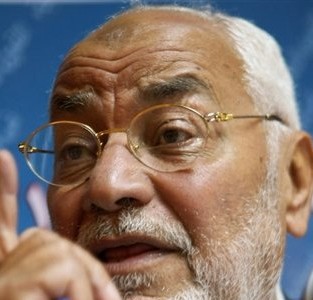Egypt’s government is currently developing sustainable strategies to facilitate investment flows and trade among African nations, aiming to create integrated partnerships with key players on the continent, including Morocco, to boost intra-African investment and trade, according to Hossam Heiba, CEO of the General Authority for Investment and Free Zones (GAFI).
Heiba made these remarks during his participation in the “Connecting Markets to Build the Future” conference, organised by Attijariwafa Bank to strategise on investment and trade integration among African countries.
He outlined the Egyptian government’s plan to continue improving the investment environment. Key to this is the anticipated launch of the first version of a unified electronic licensing platform within days. This platform will connect entities responsible for issuing necessary approvals for investor license applications, consolidating the point of contact for investors and simplifying licensing procedures.
The conference was attended by Hala El-Said, Advisor to the President for Economic Development; Mouawia Essekelli, Managing Director of Attijariwafa Bank Egypt; Ismail Douiri, Co-CEO of Attijariwafa Bank Group; Hazem Enan, Vice Chairman of the Industrial Development Authority; Hani Berzi, Chairperson of Edita Food Industries; Moustapha Cissé, Deputy CEO of Senegal’s Investment Promotion Agency (APIX-S.A.); and Amedeo Abunaw, Deputy General Manager of Cameroon’s Investment Promotion Agency.
Abunaw highlighted Cameroon’s investment advantages, noting its membership in several economic blocs that facilitate trade and investment with neighbouring countries, such as the Economic Community of West African States (ECOWAS) and the African Continental Free Trade Area (AfCFTA). He also pointed out Cameroon’s role as a major trade hub in West Africa due to its shared borders with landlocked countries like Chad and the Central African Republic. Abunaw praised Attijariwafa Bank’s initiative to establish the “Africa Development Club” in Egypt, Cameroon, and other African nations, stating such initiatives provide a conducive environment for exchanging views, experiences, investment opportunities, and developments, thereby facilitating investment and trade flows across the continent.
Cissé invited the Egyptian business community to explore investment opportunities in Senegal, particularly in food processing and preservation, natural gas production and distribution, digital transformation, tourism, and pharmaceuticals. He noted these sectors require significant investment in Senegal, and Egypt possesses considerable expertise in managing them. Mr Cissé affirmed Senegal’s political leadership’s desire to attract Egyptian investments and exports, acknowledging Egypt as the first country to recognise Senegal’s independence. Consequently, APIX-S.A. plans to hold a Senegalese-Egyptian investment forum in Dakar as soon as possible, in coordination with GAFI, to agree on targeted sectors for investment partnerships.
Berzi, Chairperson of Edita Food Industries, commended the role of export councils and foreign trade exhibitions affiliated with the Ministry of Investment and Foreign Trade in supporting Egyptian businesses looking to export to African countries. He stated that African countries currently account for 15% of Egyptian exports, a figure that can be increased through better studies of consumer preferences in each country, intensified presence of financial institutions guaranteeing exports and investments in Africa, improved infrastructure and logistics connecting the continent’s nations, and forming bilateral and multilateral partnerships with local partners in targeted countries to overcome bureaucratic hurdles, government regulations, or challenges related to distribution network efficiency.



